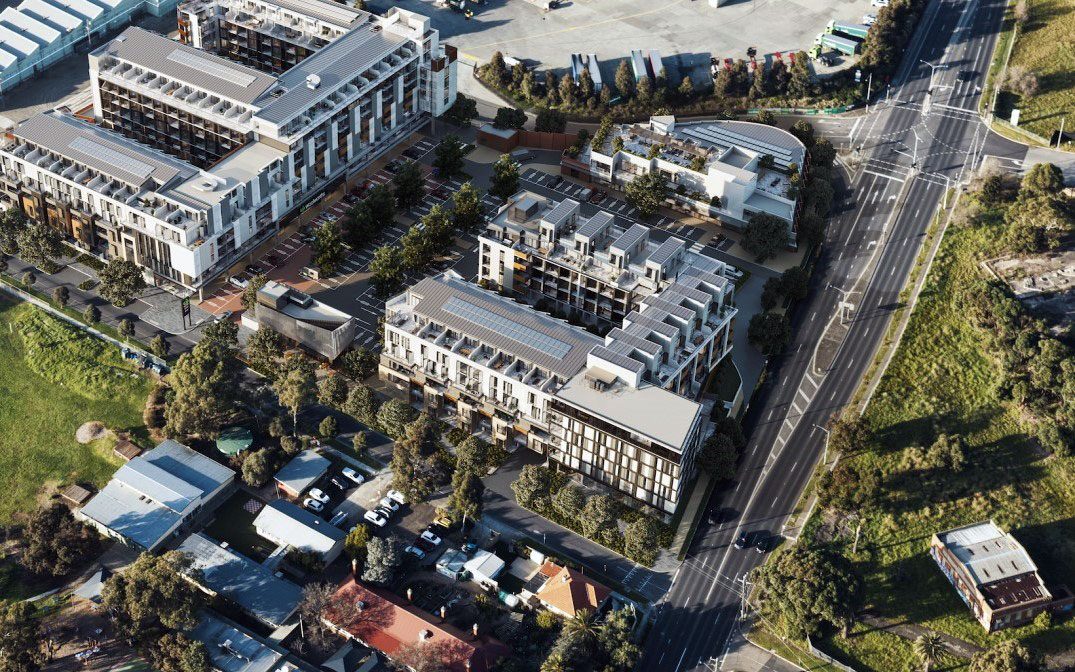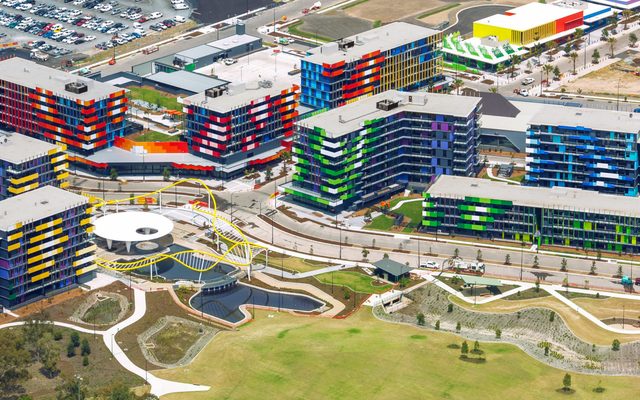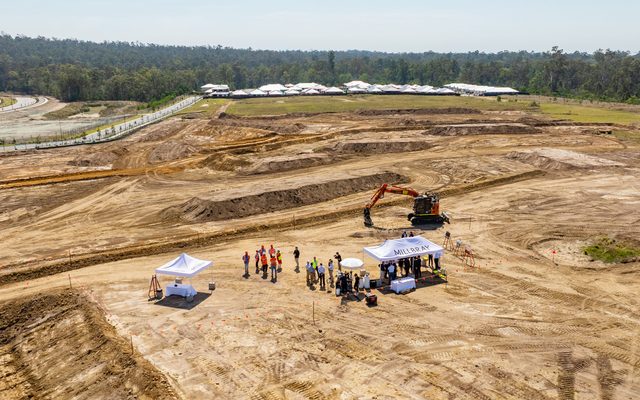This article is from the Australian Property Journal archive
IN a sign of build-to-rent as an emerging commercial property investment asset class, private developer and family office, the Suleman Group, are selling their brand new, completed and operational scale BTR development.
Union Quarter is being offered for sale via an international expressions of interest campaign, handled by Knight Frank’s Langton McHarg, Stephen Kelly and Tim Holtsbaum in conjunction with Savills’ Conal Newland and Paul Savitz.
The agents said this was an extremely rare opportunity to acquire the first privately developed BTR asset of scale in Australia, de-risked with secure and immediate income.
Located at 31-69 McLister Street Spotswood in Melbourne’s inner western suburbs, the development comprises 332 apartments including 34 dwellings dedicated for specialised disability accommodation under the National Disability Insurance Scheme (NDIS).
It is part of a mixed-use development with a neighbourhood activity centre anchored by 4,200 sqm Woolworths supermarket, 1,550 sqm Dan Murphy’s liquor store, along with 1,336 sqm medical, healthcare, and childcare services and a mix of specialty retail, café and town square.
This $275 million project had been 20 years in the making for the Suleman Group, which acquired the 20,000 sqm landholding two decades ago as a strategical holding and value-adding the asset. Construction began three years ago after the group secured funding from ANZ Institutional Banking.
Suleman Group development director Zoran Pavlovic said there had been significant buyer interest in Union Quarter for some time, hence why the development was being taken to the market via a formal campaign.
“With a chronic undersupply of rental accommodation in Australia, more build-to-rent projects are needed in Australia, and investor appetite for these assets is strong, both domestically and from overseas capital,” he said. “Union Quarter is nearing completion, eliminating any development risk for an incoming purchaser in a market where construction costs are escalating, feasibility metrics are tightening for many BTR projects. This defensive asset enables investors to enter the tightly-held rental market to take immediate advantage of both income growth and future capital growth and secure an asset below replacement cost.”
Holtsbaum said across the globe investors were seeking greater exposure to alternative sectors, and the residential ‘living’ sectors were at the front of the queue, led by BTR.
“For the first time, residential is the most sought-after sector for global investors targeting the Asia Pacific region, and Sydney and Melbourne are the preferred locations,” he said. “Investors are gravitating toward the residential sector partly because of its defensive characteristics, specifically the ability to adjust rental income streams more quickly than other sectors in response to inflation.
“They are also assured by the relative resilience of residential rental performance during market downturns, with rents rarely falling in any major city.
“Investors are seeking out resilient markets with long-term growth potential and the lack of an established BTR sector in Australia presents an opportunity to deploy capital into build-to-core strategies with the ability to achieve significant scale over time,” added Holtsbaum.
The Union Square offering comes as the BTR sector in Australia is forecast to see around 55,000 dedicated units completed by 2030, according to according to the latest research from Knight Frank.
Currently there is an estimated 8,350 dedicated BTR apartments under construction nationally as at September 2023, and a further 12,900 units are approved for development in the near term.
The Knight Frank research found that among the major cities, Melbourne was leading the way for BTR developments, with 4,920 apartments under construction and another 8,250 approved.
But even if the total BTR stock grows to 55,000, it would still only represent 1.5% of the total rental supply in Australia, underlining the potential for scale.
The forecast is based on the BTR experience in the UK, which has expanded rapidly to become a significant and fast-growing part of the residential market. Since 2015, the total stock of BTR apartments has expanded to 83,000 apartments, with the current development pipeline pointing to a further acceleration in development activity in 2024-25.
From a standing start, BTR supply now accounts for 1.5% of the total rental market, with the expectation that this proportion will continue to increase rapidly as the sector matures. London has been a natural focal point for BTR developments, with 38,000 apartments in the capital, representing 46% of total stock, but BTR has established a foothold in all major cities including Manchester, Birmingham, Leeds, Liverpool and Bristol.
Meanwhile the EOI campaign for Union Square closes 5 October 2023.





